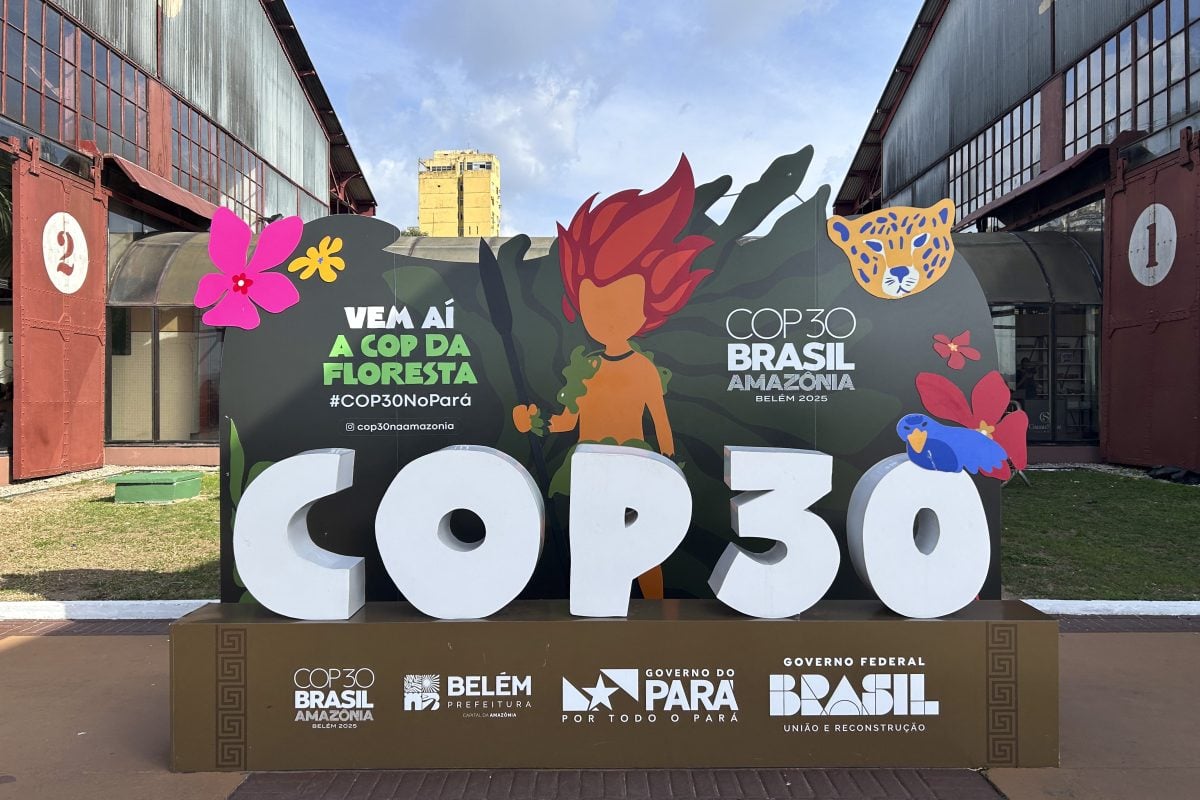This year’s COP, scheduled for 10 to 21 November, will look different to previous summits. The last few COPs have been held in glitzy destinations including Dubai and Sharm El Sheikh, Egypt. Brazil has decided to bring the event to the city of Belém on the edge of the Amazon rainforest. The host country hopes its choice of venue will highlight the need to conserve rainforests in the fight against climate change.
This issue is of great importance to Africa. If the Amazon is one of the world’s “green lungs”, the other is the Congo Basin rainforest on the other side of the Atlantic. The Congo rainforest is actually even more important as a carbon sink than the Amazon – it removes more carbon from the atmosphere than any other terrestrial ecosystem
As Brazil looks to gather allies for its rainforest conservation proposals, it has been eager to reinforce ties with Africa. In an address to the Africa Climate Summit in Addis Ababa last month, COP30 president André Corrêa do Lago told delegates that: “I am sure that all the things that unite Brazil and the African continent will be very clear at COP30.”
Fighting for forests
Worldwide, tropical forests are being lost at a rate equivalent to 18 soccer pitches per minute. DR Congo and Congo-Brazzaville both saw records levels of forest loss last year.
Phillip Kihumuro, forest restoration and carbon absorption manager at the World Wildlife Fund (WWF) Uganda, tells African Business that the loss of the Amazon and Congo Basin rainforests would have “catastrophic” consequences for climate, food security, local livelihoods and biodiversity. “We need to move ambition into real action.”
He says that one of the main challenges currently is that financing for forest conservation is “very minimal” – far short of the $500m per year he says is needed. “We need to develop and promote innovative financing mechanisms for us to find an opportunity.”
Kihumuro welcomes Brazil’s initiative in launching the Tropical Forests Forever Facility (TFFF) which aims to incentivise countries to conserve tropical forests. It will use a blended finance structure, in which both sovereign and private capital is invested into a fund that generates returns from a diversified portfolio. A portion of the returns would then be allocated to reward countries that conserve forestry. Countries could receive $4 for each hectare of preserved forest, providing they keep deforestation rates below 0.5% per year and that the deforestation rate is falling when they join the TFFF.
Based on these criteria, the non-profit Plant-for-the-Planet initiative estimates that Angola, the Central African Republic, Ethiopia, Somalia and South Africa would be eligible to receive payments. Several other African countries could join this group if they can reduce deforestation. Brazil has set a lofty goal of raising $125bn for the TFFF, which would generate $4bn annually for forest conservation. In September the Brazilian government announced it would invest $1bn in the fund as it seeks to “lead by example” in encouraging contributions.
With the TFFF to be officially launched in Belém, a major priority for the COP30 hosts will be to encourage other governments and institutional investors to commit to the fund.
Can Africa make its voice heard?
While holding COP in Belém will shine a light on forest conservation, bringing the summit to a relatively small and remote location has its downsides. Brazilian president Luiz Inácio Lula da Silva has spent recent months begging his counterparts to jet in for the summit. In a visit to Nigeria in August, the veteran leader called for “broad African participation,” noting that COP provides an opportunity to highlight the climate pressures facing the continent.
The cost of transport and accommodation is, however, a barrier to participation for delegates from the Global South. As many as 80,000 people have attended recent COPs, but limited space in Belém means hotel costs have rocketed. The UN offers a daily subsistence rate for officials from 144 developing countries – the rate was raised from $149 to $197 in September, though this is still insufficient to cover the cost of accommodation close to summit venues.
Richard Muyungi, chair of the African Group of Negotiators, demanded in July that Brazil find “better answers” to allow African delegates to attend. Several African NGOs have stated that they will have to downscale their presence; the Africa Just Transition Network, for example, plans to send four to Belém, compared to more than 15 at recent COPs.
Measure of success
Ultimately, of course, the success of COP30 will be measured by its concrete outcomes rather than the quality of its hospitality. For Africa, alongside rainforest conservation, the key issue will once again be climate finance. The previous COP in Baku reached an unpopular compromise on providing support to lower-income countries for adapting to climate change, with a goal to provide $300bn a year by 2035.
A vague mention of “scaling up” financing to meet the $1.3 trillion that developing nation governments say is needed was also inserted into the text. At COP30, African negotiators “should push for a renewed and more ambitious commitment to scale up adaptation finance,” says David Abudho, climate justice lead at Oxfam in Africa. He argues that climate finance needs to come in the form of grants, pointing to recent Oxfam research that found interest on climate finance loans means African countries end up paying $7 back for every $5 they receive.
Abudho also says that Africa should push for climate finance funds to become more easily accessible. He warns that “current rigid requirements for developing of bankable projects under climate funds” stand in the way of funding reaching those most in need. Ahead of COP30, African governments used last month’s back-to-back 13th Conference on Climate Change and Development in Africa and the Africa Climate Summit in Addis Ababa to align on key priorities for COP30.
Claver Gatete, the executive secretary of the UN Economic Commission for Africa, said Africa would demand “urgent, predictable and scaled-up international support” at COP30.
Reality check
With the United States no longer showing any interest in climate finance, and many European countries slashing their aid budgets, the grant-based or highly concessional funding that African countries are looking for is in shorter supply than ever. Abudho admits that it is “hard to tell” whether or not COP30 will be a success.
“Multilateralism has been shaken, and gains secured over the years have been eroded following the decision of the US to pull out of the Paris Agreement,” he says. “The ‘drill baby drill’ call from the biggest historical emitter, and the abandonment of climate commitments of wealthy nations does not bode well for a positive Belém outcome.”
While major progress on climate finance would seems unlikely, other mechanisms to support Africa in its just transition agenda will be high up the agenda at COP30. Indeed, COP30 president do Lago said in Addis Ababa that Brazil would “embrace many of the priorities of Africa”.
He specifically pledged “a very special focus” on Mission 300 – the initiative, led by the World Bank and African Development Bank, to connect 300m people in Africa to electricity by 2030 – and clean cooking. Meanwhile, Africa will not have long to wait before it plays host to a COP of its own. The continent is due to hold COP32 in 2027, with Ethiopia and Nigeria in the running to stage the showpiece conference.
Want to continue reading? Subscribe today.
You've read all your free articles for this month! Subscribe now to enjoy full access to our content.
Digital Monthly
£8.00 / month
Receive full unlimited access to our articles, opinions, podcasts and more.
Digital Yearly
£70.00 / year
Our best value offer - save £26 and gain access to all of our digital content for an entire year!

 Sign in with Google
Sign in with Google 



